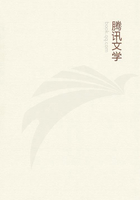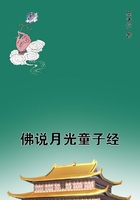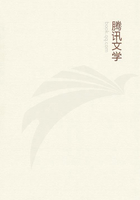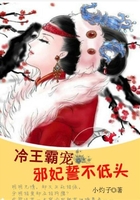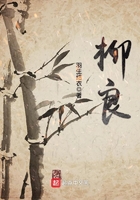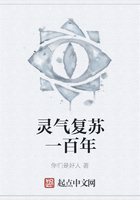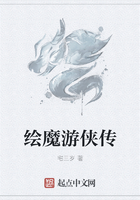This national gift did not, however, confine itself to the criticism and description of individuals, but felt itself competent to deal with the qualities and characteristics of whole peoples.Throughout the Middle Ages the cities, families, and nations of all Europe were in the habit of making insulting and derisive attacks on one another, which, with much caricature, contained commonly a kernel of truth.But from the first the Italians surpassed all others in their quick apprehension of the mental differences among cities and populations.Their local patriotism, stronger probably than in any other medieval people, soon found expression in literature, and allied itself with the current conception of 'Fame.' Topography became the counterpart of biography;while all the more important cities began to celebrate their own praises in prose and verse, writers appeared who made the chief towns and districts the subject partly of a serious comparative description, partly of satire, and sometimes of notices in which jest and earnest are not easy to be distinguished.Next to some famous passages in the 'Divine Comedy,' we have here the 'Dittamondo' of Uberti (about 1360).
As a rule, only single remarkable facts and characteristics are here mentioned: the Feast of the Crows at Sant' Apollinare in Ravenna, the springs at Treviso, the great cellar near Vicenza, the high duties at Mantua, the forest of towers at Lucca.Yet mixed up with all this, we find laudatory and satirical criticisms of every kind.Arezzo figures with the crafty disposition of its citizens, Genoa with the artificially blackened eyes and teeth (?) of its women, Bologna with its prodigality, Bergamo with its coarse dialect and hard-headed people.In the fifteenth century the fashion was to belaud one's own city even at the expense of others.Michele Savonarola allows that, in comparison with his native Padua, only Rome and Venice are more splendid, and Florence perhaps more joyous--by which our knowledge is naturally not much extended.At the end of the century, Jovianus Pontanus, in his 'Antonius,' writes an imaginary journey through Italy, simply as a vehicle for malicious observations.But in the sixteenth century we meet with a series of exact and profound studies of national characteristics, such as no other people of that time could rival.
Machiavelli sets forth in some of his valuable essays the character and the political condition of the Germans and French in such a way that the born northerner, familiar with the history of his own country, is grateful to the Florentine thinker for his flashes of insight.The Florentines begin to take pleasure in describing themselves; and basking in the well-earned sunshine of their intellectual glory, their pride seems to attain its height when they derive the artistic pre-eminence of Tuscany among Italians, not from any special gifts of nature, but from hard, patient work.The homage of famous men from other parts of Italy, of which the sixteenth Capitolo of Ariosto is a splendid example, they accepted as a merited tribute to their excellence.
Of an admirable description of the Italians, with their various pursuits and characteristics, though in a few words and with special stress laid on the Lucchese, to whom the work was dedicated, we can give only the title: _Forcianae Questiones, _by Ortensio Landi, Naples, 1536.Leandro Alberti is not so fruitful as might be expected in his description of the character of the different cities.A 'Commentario'
(by Ortensio Landi, Venice, 1553) contains among many absurdities some valuable information on the unfortunate conditions prevailing about the middle of the century.
To what extent this comparative study of national and local characteristics may, by means of Italian humanism, have influenced the rest of Europe, we cannot say with precision.To Italy, at all events, belongs the priority in this respect, as in the description of the world in general.
Description of the Outward Man But the discoveries made with regard to man were not confined to the spiritual characteristics of individuals and nations; his outward appearance was in Italy the subject of an entirely different interest from that shown in it by northern peoples.
Of the position held by the great Italian physicians with respect to the progress of physiology, we cannot venture to speak; and the artistic study of the human figure belongs, not to a work like the present, but to the history of art.But something must here be said of that universal education of the eye, which rendered the judgement of the Italians as to bodily beauty or ugliness perfect and final.
On reading the Italian authors of that period attentively, we are astounded at the keenness and accuracy with which outward features are seized, and at the completeness with which personal appearance in general is described.Even today the Italians, and especially the Romans, have the art of sketching a man's picture in a couple of words.
This rapid apprehension of what is characteristic is an essential condition for detecting and representing the beautiful.In poetry, it is true, circumstantial description may be a fault, not a merit, since a single feature, suggested by deep passion or insight, will often awaken in the reader a far more powerful impression of the figure described.Dante gives us nowhere a more splendid idea of his Beatrice than where he only describes the influence which goes forth from her upon all around.But here we have not to treat particularly of poetry, which follows its own laws and pursues its own ends, but rather of the general capacity to paint in words real or imaginary forms.

